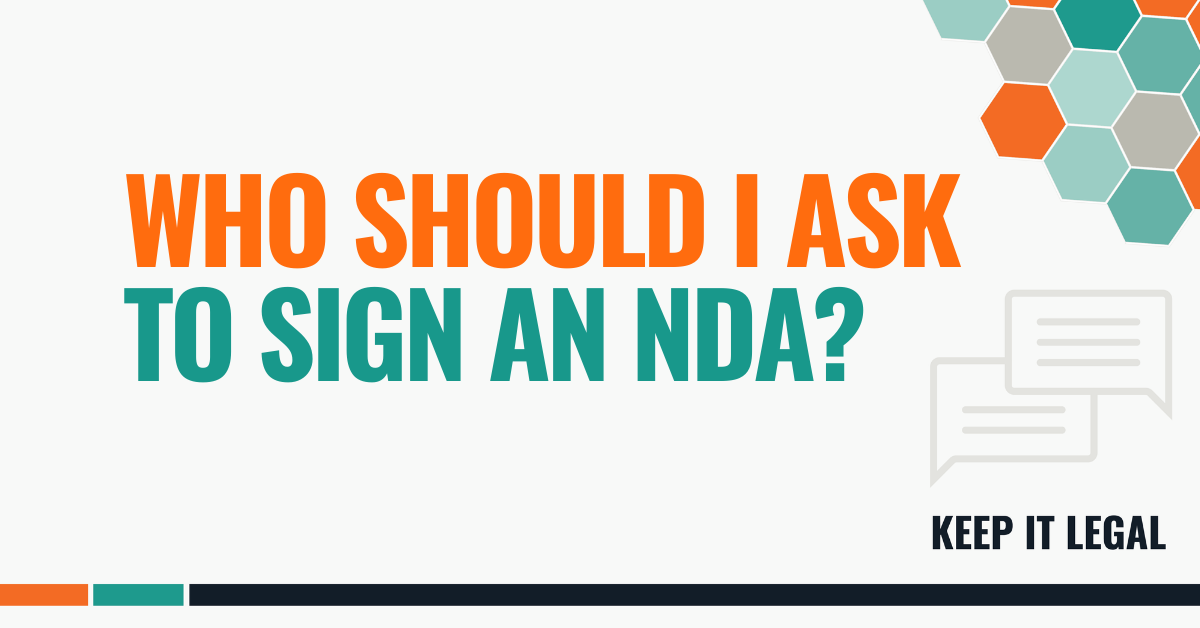Non-Disclosure Agreements, or NDAs, are one of the most common types of business documents. The purpose is simple: to prevent one party from disclosing the confidential information of another party.
Business owners are sometimes confused about NDAs and who should sign them. So let’s go over some of the basics.
What is Covered?
An NDA can cover any information that your company owns that’s confidential. These are referred to as “Trade Secrets” – for more information about Trade Secrets, click here. Items covered by an NDA may include:
- Lists and contact information of customers or clients
- Business plans, including future product or service launches
- New ideas and inventions
- Fees and costs
- Marketing and advertising information
- Computer software
- Confidential information of third parties, such as your company’s clients
Mutual or One-Way?
NDAs come in two basic flavors: mutual or one-way. A one-way NDA is appropriate when your company is sharing information with someone but they aren’t sharing any confidential info with you. An example may be a potential employee – she is learning about your company through the hiring process, but she may not be bringing her own confidential information to the table, so asking her to sign one-way NDA would be appropriate.
A mutual NDA is recommended when both parties are sharing confidential information. For example, if your company is entering into a strategic partnership with another business, you may want to sign a mutual NDA so both parties’ trade secrets are protected.
Who Should Be Asked to Sign?
In most cases, anyone who’s going to be exposed to your company’s confidential information should, ideally, sign an NDA. However, there are a few exceptions. For example, attorneys don’t typically sign NDAs. Almost all information you share with an attorney is already privileged and confidential, so in most cases, there’s no need to have the attorney sign an NDA.
When to Ask?
This part can be tricky. For example, let’s say you’ve developed a concept to help a big company sell more of their products. If you call up their corporate office and ask them to sign an NDA before they even know who you are or what you have to share, you probably won’t get a good response. So in some cases, part of the confidential information may need to be shared before the other party is likely to sign an NDA.
On the other hand, if your company is established and you have a solid professional reputation in your industry, you’re more likely to be able to get an NDA signed before you disclose anything. Bottom line: use your best judgment, and if the other party is resistant to signing, discuss the details of the document with them to find out what the real sticking point is.
NDAs are an important part of a business owner’s toolkit. If you need assistance creating or reviewing an NDA, feel free to be in touch with me directly.


